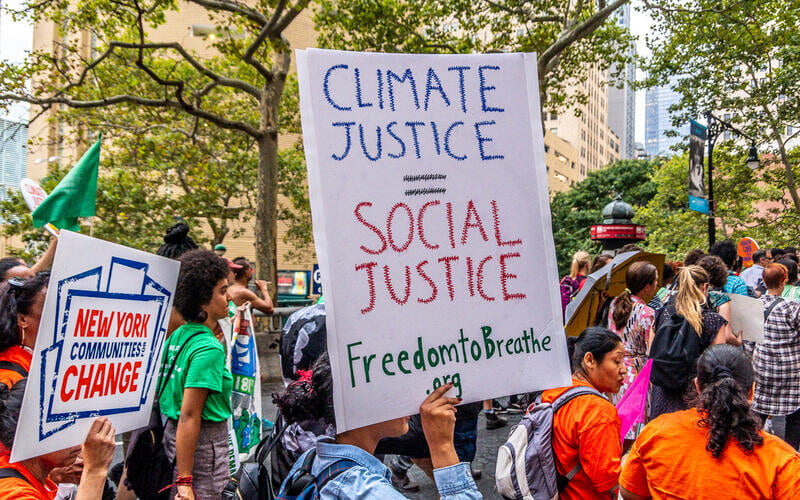by Kaelin Ferland '23 on November 17, 2022
Opinion Staff
Eco Updates

Climate and weather are two entirely different concepts. When we talk about the weather, we’re referring to short-term changes in our atmosphere, whereas when we talk about climate, we’re referring to long-term changes and atmospheric trends over time. Yet despite these important distinctions, whenever there’s an abnormal period of warm weather in November or December, everyone’s quick to claim that it’s climate change or global warming (also two very different concepts, but that’s a topic for another article).
The facts make the existence of climate change inarguable. However, to be informed and knowledgeable about this issue, we need to change the way we talk about climate change and be familiar with and more aware of what we’re talking about. By using incorrect language and terms, it seems as though we don’t fully understand what climate change is, which is a problem. If we want to raise awareness and advocate for change, we need to understand the issue at hand in order to have these discussions.
We can’t say that last week’s temperatures reaching the high 70s is climate change. It was the weather, a brief period of warm temperatures. What is climate change? Is it the fact that these past years have had significantly higher temperatures than the years before? The World Meteorological Organization just announced that the last eight years were the hottest on record. This is evidence of climate change. We can use these temperature trends to support the existence of climate change, but we can’t cite this temporary increase in temperature that we experienced in the middle of November as proof.
Another example is hurricanes and natural disasters. Yes, there were many hurricanes and floods this year, but we can’t say that this is evidence of climate change without looking at data from previous years. If the data shows that the frequency of hurricanes and natural disasters has been increasing in recent years, and it is higher than it was in the past (which they do), then we can say that this is evidence of climate change. According to a 2021 report by the World Meteorological Organization and United Nations Office for Disaster Risk Reduction, natural disasters have increased in frequency by five times over the past 50 years.
The same relationship is true for when it’s abnormally cold for a day or two in the spring and summer months. Some take this as an opportunity to deny climate change, an inaccurate statement as they are making this claim based on the weather, not climate. These short-lived fluctuations in temperature cannot be used as evidence against climate change.
If you look at the numbers, it’s clear that climate change is happening. All of the data indicate that with each year, temperatures continue to rise along with natural disaster frequencies. But when it’s unusually warm during the winter, we can’t just say that it’s climate change, just as when it’s unusually cold during the summer, this doesn’t disprove climate change’s existence. In the end, climate change is happening regardless of whether or not we notice it, even when we can’t feel or see it ourselves. However, we can’t and shouldn’t only pay attention to the problem when we feel its effects. At some point, we’ll end up noticing it but won’t be able to do anything to solve it.